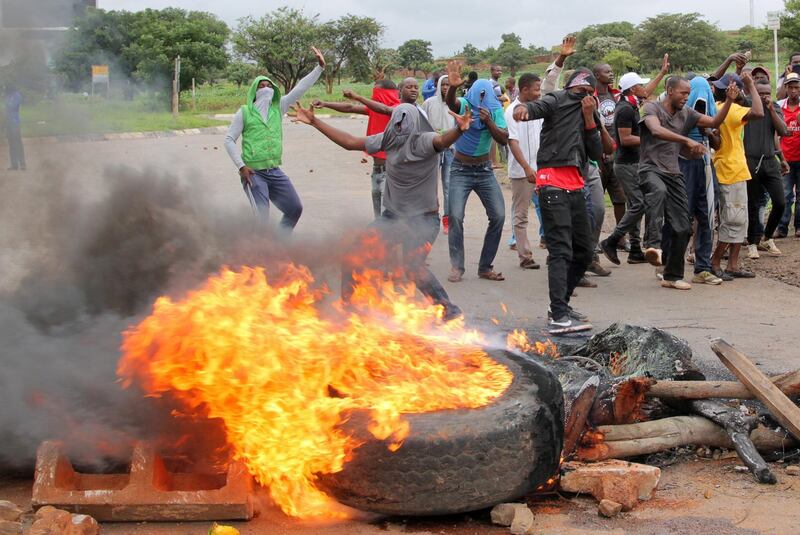Zimbabwean soldiers beat people on the streets of the capital Harare and second city of Bulawayo on Tuesday evening, hours after President Emmerson Mnangagwa promised an investigation into a crackdown on anti-government demonstrations.
Meanwhile Zimbabwe's Human Rights Commission accused security forces of systematic torture in a report on Tuesday that was highly critical of the government deploying troops to quash protests.
Unrest broke out 10 days ago following a steep increase in fuel prices and amid growing frustration with the inability of President Mnangagwa’s government to deal with worsening economic collapse.
Activists and lawyers say police and soldiers have killed at least a dozen people, wounded more than 300 and arrested more than 600. Some protesters were shot at close range, while others were pulled from hospital beds and arrested. They are likely “just a fraction of the actual victims,” the Zimbabwe Association of Doctors for Human Rights said Tuesday.
Police say three people have died.
Some of the arrested were detained in the streets while venturing out in search of bread. The dozens in court on Wednesday are accused of “committing public violence.”
Despte the criticism, the military has continued patrolling and manning checkpoints. The president’s spokesman appeared to back the security services’ handling of protests, which he described as a threat to the state.
“The state has an obligation to demonstrate that it exists to ensure law and order and that’s exactly what happened,” George Charamba told reporters. Previously he said the crackdown was a demonstration of what future protesters could expect.
On Tuesday, Mr Mnangagwa promised to investigate the actions of security services in putting down protests, while calling for a "national dialogue" with churches, civil society and the opposition.
Opposition leader Nelson Chamisa responded to the president’s call by demanding the “unconditional release of all prisoners of conscience and political detainees.”
There is little sign that the end of the unrest is in sight, and on Wednesday civil servants announced plans for a strike after salary negotiations failed.
David Dzatsunga, secretary of the Civil Service Apex Council, said a strike by some 500,000 civil servants will begin on Friday.
_______________
Read more:
Mass protests in Zimbabwe after fuel prices more than doubled
Zimbabwe public workers reject latest wage offer amid protests
Zimbabwe's hopes of a post-Mugabe dawn dim after election
_______________






